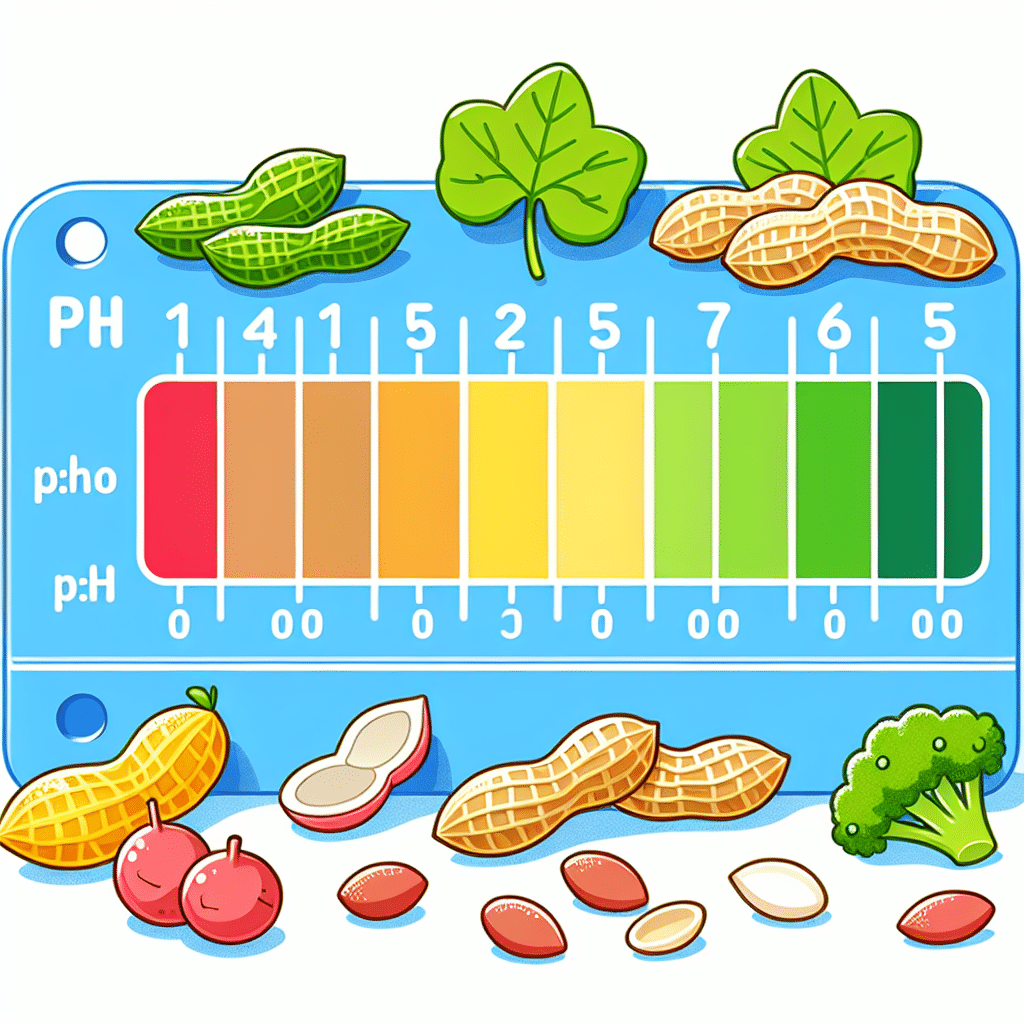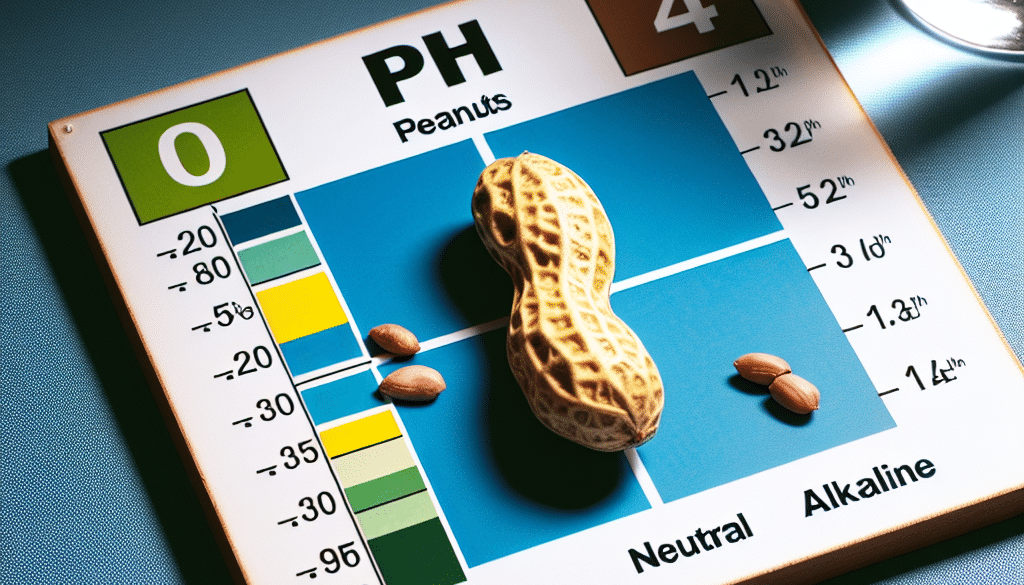Are Peanuts Acidic? Unpacking The pH Levels
-
Table of Contents
- Are Peanuts Acidic? Exploring the pH Levels of This Popular Legume
- Understanding pH Levels and Acidity in Foods
- The pH Level of Peanuts
- Impact of Peanuts’ Acidity on Health
- Nutritional Benefits of Peanuts
- How to Enjoy Peanuts While Managing Acidity
- Conclusion: Peanuts and Their Place in an Acid-Conscious Diet
- Discover ETprotein’s High-Quality Protein Products
Are Peanuts Acidic? Exploring the pH Levels of This Popular Legume

Peanuts are a staple in many diets around the world, known for their rich flavor and nutritional benefits. However, when it comes to their acidity, there seems to be some confusion. Understanding the pH levels of peanuts is important for those who are concerned about acid reflux, dietary balance, or food preservation. In this article, we will delve into the science behind the pH levels of peanuts and what it means for your health and culinary uses.
Understanding pH Levels and Acidity in Foods
Before we examine the acidity of peanuts, it’s essential to understand what pH levels indicate. The pH scale measures how acidic or basic a substance is, ranging from 0 to 14. A pH of 7 is considered neutral, while a pH less than 7 is acidic, and a pH greater than 7 is basic (alkaline). Most foods have a pH that falls somewhere between these extremes.
Acidity in foods can affect flavor, preservation, and how they interact with our bodies. For instance, acidic foods can sometimes trigger acid reflux in susceptible individuals. Moreover, the pH level of food can influence its shelf life and how it should be processed for storage.
The pH Level of Peanuts
Peanuts, like all legumes, have a pH that can vary slightly depending on the type and how they are prepared. Raw peanuts typically have a pH ranging from 6.2 to 6.5, making them slightly acidic to almost neutral. However, the processing of peanuts, such as roasting, can affect their pH levels.
- Raw peanuts: pH 6.2 – 6.5
- Roasted peanuts: pH 5.9 – 6.2
It’s important to note that while peanuts are on the lower end of the pH scale, they are not highly acidic compared to other foods like citrus fruits or vinegar.
Impact of Peanuts’ Acidity on Health
For most people, consuming peanuts will not cause any issues related to their acidity. However, for those with sensitive digestive systems or conditions like gastroesophageal reflux disease (GERD), even mildly acidic foods can be a concern.
Studies have shown that a diet high in fat and certain acidic foods can exacerbate acid reflux symptoms. Peanuts, being high in fat, might contribute to these symptoms in some individuals. However, this does not mean that everyone with acid reflux should avoid peanuts, as tolerance varies from person to person.
Nutritional Benefits of Peanuts
Despite their mild acidity, peanuts are packed with nutrients that can offer various health benefits:
- Rich in protein: Peanuts are a good source of plant-based protein, essential for muscle repair and growth.
- Heart-healthy fats: They contain monounsaturated and polyunsaturated fats, which can help lower bad cholesterol levels.
- Fiber: Peanuts are high in dietary fiber, which aids in digestion and promotes a feeling of fullness.
- Vitamins and minerals: They provide key vitamins and minerals such as vitamin E, magnesium, and potassium.
These nutritional benefits make peanuts a valuable addition to a balanced diet for most people.
How to Enjoy Peanuts While Managing Acidity
If you are concerned about the acidity of peanuts but still want to enjoy them, here are some tips:
- Consume peanuts in moderation to minimize any potential acid reflux triggers.
- Pair peanuts with alkaline foods like vegetables to balance the meal’s overall pH.
- Opt for natural, unsalted peanuts to avoid additional ingredients that might increase acidity.
- Choose dry-roasted peanuts over oil-roasted ones to reduce fat content, which may help those with acid reflux.
Conclusion: Peanuts and Their Place in an Acid-Conscious Diet
In conclusion, peanuts are mildly acidic but are not likely to cause problems for most people when consumed in moderation. Their nutritional benefits make them a valuable addition to a healthy diet. However, individuals with acid reflux or other digestive sensitivities should monitor their peanut intake and consult with a healthcare provider if they have concerns.
The key takeaways from this exploration into the pH levels of peanuts are:
- Peanuts have a slightly acidic to almost neutral pH level.
- Processing methods like roasting can affect the acidity of peanuts.
- Most people can enjoy peanuts without concern for their mild acidity.
- Those with acid reflux should pay attention to how peanuts affect their symptoms.
By understanding the pH levels of peanuts and how they fit into your diet, you can make informed choices that support your health and culinary enjoyment.
Discover ETprotein’s High-Quality Protein Products
If you’re looking for plant-based protein options that complement a balanced diet, consider ETprotein’s range of products. ETprotein is a reputable protein Chinese factory manufacturer and supplier, offering a variety of organic bulk vegan protein and plant proteins. Their selection includes organic rice protein, clear rice protein, pea protein, clear pea protein, pumpkin seed protein, sunflower seed protein, mung bean protein, and peanut protein.
ETprotein’s products are characterized by a neutral taste and are non-GMO and allergen-free, making them suitable for a wide range of dietary needs. Whether you’re involved in the nutraceutical, pharmaceutical, cosmeceutical, veterinary, or food and beverage industries, ETprotein can meet your protein requirements with their high-quality offerings.
For more information or to sample their products, please contact ETprotein and email sales(at)ETprotein.com today.
About ETprotein:
ETprotein, a reputable protein Chinese factory manufacturer and supplier, is renowned for producing, stocking, exporting, and delivering the highest quality organic bulk vegan protein and plant proteins. They include Organic rice protein, clear rice protein, pea protein, clear pea protein, pumpkin seed protein, sunflower seed protein, mung bean protein, peanut protein etc. Their offerings, characterized by a neutral taste, non-GMO, allergen-free attributes, cater to a diverse range of industries. They serve nutraceutical, pharmaceutical, cosmeceutical, veterinary, as well as food and beverage finished product distributors, traders, and manufacturers across Europe, USA, Canada, Australia, Thailand, Japan, Korea, Brazil, and Chile, among others.
ETprotein specialization includes exporting and delivering tailor-made protein powder and finished nutritional supplements. Their extensive product range covers sectors like Food and Beverage, Sports Nutrition, Weight Management, Dietary Supplements, Health and Wellness Products, and Infant Formula, ensuring comprehensive solutions to meet all your protein needs.
As a trusted company by leading global food and beverage brands and Fortune 500 companies, ETprotein reinforces China’s reputation in the global arena. For more information or to sample their products, please contact them and email sales(at)ETprotein.com today.














